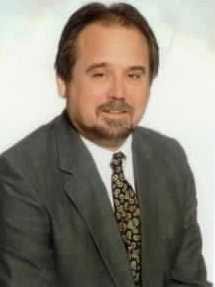
Kansas District Judge E. Leigh Hood has deemed polygraph results proffered by the defendant in a murder trial to be inadmissible. Vincent Marshall reports for the Dodge City Daily Globe:
Judge denies polygraph tests as evidence
By Vincent Marshall/Dodge City Daily Globe
Posted Feb. 13, 2015 at 1:01 AMDodge City, Kan.Judge Leigh Hood has denied the motion to admit polygraph evidence in the Brock Cunningham case of the death of 3-year-old Natalie Pickle.
Cunningham was charged with first-degree murder and child abuse after the death of Pickle who was under the care of Cunningham when she supposedly jumped off a bed and sustained head injuries that ultimately led to her death. Doctors later deemed her injuries to possibly have been caused by blunt force trauma to the head.
In his ruling Hood said, “In Kansas and elsewhere, one of the primary functions a jury is tasked with is to listen to live witnesses evaluate the credibility of their testimony. Since the jury trial system was implemented in our country, the courts have entrusted juries with the responsibility to make credibility determinations. It is a well-known rule in Kansas that a witness cannot testify or express an opinion about the credibility of another witness.”
The ruling comes from the court case State v. Elnicki where the Kansas Supreme Court said; “We start our analysis with the well-known rule that a witness may not express an opinion on the credibility of another witness, State v. Jackson (1986). This is because the determination of the truthfulness of a witness is for the jury.”
The Elnicki case did not deal with a polygraph test as evidence but with the rule of law being that a witness cannot express opinions another witness, that was how Hood came to make his decision.”
It appears to this Court that to allow a polygrapher to testify in a criminal jury trial,” Hood said, “would be to allow one witness to testify about the credibility of another witness, which in the present case is the defendant.
“The Supreme Court has made it clear that determining the weight and credibility of witness testimony is the role of the jury. To allow the polygraph evidence will clearly usurp this role. For this reason alone, the defendant’s motion to admit polygraph evidence must be denied.”
Defense attorneys, Daniel Monnat and Trevor Riddle, had presented testimony from Dr. David Raskin and Gary Davis who used computerized polygraph tests when administering it to Cunningham.
Cunningham had scored very high and passed both tests.
Prosecuting attorney Natalie Randall then presented testimony from Roger Butler with the Kansas Bureau of Investigation, who when reviewing the tests done by Raskin and Davis deemed the outcome of the results to be inconclusive.
Yet, despite the polygraph tests claiming that Cunningham was being honest in terms of his innocence, allowing those tests to be admitted would take away the job for the jury to decide.
For related commentary, see University of South Carolina law professor Colin Miller’s 27 January 2015 blog post, “Liar, Liar: Will Kansas Now Allow for Polygraph Evidence to be Admitted?”